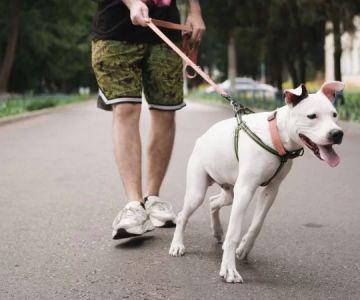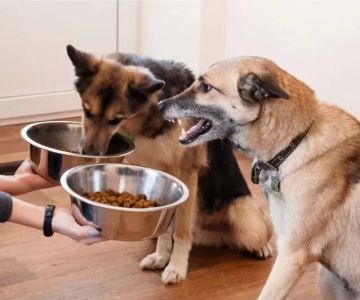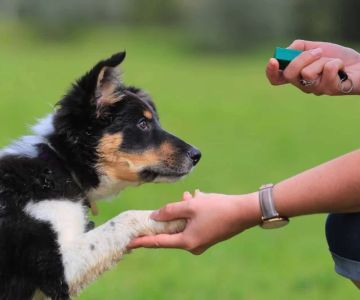How to Get Your Dog to Stop Begging for Food: Effective Strategies for Pet Owners
- Understanding Dog Begging Behavior
- Why Do Dogs Beg for Food?
- Training Your Dog to Stop Begging
- Practical Tips to Reduce Begging
- Real-Life Examples and Stories
- Why Consistency is Key in Training
1. Understanding Dog Begging Behavior
Dog begging for food is a common issue faced by many pet owners. Whether you’re sitting down for a meal or simply snacking, you’ve probably encountered your dog’s pleading eyes, sitting patiently at your feet, hoping for a bite. While it may be cute at first, begging can quickly become a disruptive and unhealthy behavior if not addressed early on.
Begging is typically a learned behavior that is reinforced by the dog receiving food when they beg. Dogs are highly adaptable creatures, and once they realize that begging can lead to tasty rewards, they may persist in this behavior. Understanding the psychological and physical factors behind begging is the first step in learning how to stop it effectively.

1946 S Christopher Columbus Blvd, Philadelphia, PA 19148, USA
See Details2. Why Do Dogs Beg for Food?
There are several reasons why dogs beg for food, and they can be linked to both instinctual and learned behaviors. Some of the most common reasons include:
- Hunger: If a dog is not fed enough or is fed at irregular times, they may beg for food out of hunger or anticipation of being fed.
- Attention-Seeking: Begging can be a way for dogs to seek attention from their owners. They learn that sitting near the table and looking cute can result in a treat or a scrap of food.
- Reinforced Behavior: If you’ve ever given your dog food when they beg, even occasionally, you might have unintentionally reinforced this behavior. Dogs are great at learning that begging equals a reward.
- Social Behavior: Dogs are social animals, and mealtime is often a communal event in their world. They want to be involved in the family’s activities, which includes sharing food.
Knowing the root cause of your dog's begging will help in determining the most effective way to address and stop it.
3. Training Your Dog to Stop Begging
Training your dog to stop begging requires patience, consistency, and understanding. Below are a few training strategies that can help curb your dog’s begging habits:
- Don’t Feed Your Dog From the Table: This is the most direct method to break the cycle. Never give your dog food from the table or while you're eating. They need to learn that begging does not result in food.
- Use Positive Reinforcement: When your dog behaves appropriately (for example, sitting calmly without begging), reward them with a treat. This reinforces the behavior you want to see more of.
- Teach “Go to Your Spot” Command: Train your dog to go to a specific spot, like their bed, while you are eating. Use positive reinforcement to reward them when they stay in their spot. This removes the temptation to beg.
- Give Your Dog a Special Treat During Meals: To reduce the temptation to beg, give your dog a treat or food puzzle during your mealtime. This diverts their attention away from your food and keeps them occupied.
- Be Consistent: Consistency is key when training your dog. Every member of the household must be on the same page and avoid rewarding begging behavior.
With time and consistency, your dog will learn that begging does not lead to food and will begin to stop the behavior.
4. Practical Tips to Reduce Begging
In addition to training, there are other practical steps you can take to reduce your dog’s begging behavior:
- Feed Your Dog at Regular Times: Ensure that your dog’s meals are consistent and at regular times each day. If your dog is well-fed and not hungry, they are less likely to beg.
- Don’t Give In: It’s important not to give in to begging, even when your dog’s behavior is especially persistent. Feeding them when they beg will only reinforce the behavior.
- Redirect Their Attention: If your dog begins to beg during meals, try redirecting their attention by giving them a toy or engaging them in a different activity.
- Feed Them Before You Eat: If your dog has a tendency to beg during your mealtime, feed them right before you sit down to eat. A satisfied dog is less likely to beg for food.
By combining these practical tips with training, you can help reduce your dog’s begging behavior and create a more peaceful mealtime environment for everyone.
5. Real-Life Examples and Stories
Many pet owners have successfully reduced their dog’s begging behavior using these techniques. Take, for example, Sarah, who had a Labrador named Max who would beg every time she sat down to eat. After being consistent with training and feeding Max before her meals, Max gradually stopped begging and began relaxing during mealtime.
Another example comes from John, who struggled with his dachshund, Bella, constantly begging at the dinner table. John started using the “go to your spot” command during meals, and within a few weeks, Bella stopped begging altogether and became comfortable resting in her designated spot during mealtime.
These success stories show that with patience, consistency, and the right approach, you can effectively stop your dog from begging for food.
6. Why Consistency is Key in Training
One of the most important aspects of training your dog to stop begging is consistency. Dogs thrive on routine and structure, and inconsistent training can lead to confusion. If you occasionally give in to your dog’s begging, they will learn that begging sometimes results in a reward, and they will continue the behavior.
Make sure everyone in your household follows the same rules when it comes to feeding your dog. The more consistent you are with not rewarding begging behavior, the quicker your dog will learn that it is not acceptable. Patience is essential, but consistency will yield long-term results.
By following these steps and being consistent in your approach, you will create a more peaceful and well-behaved dog during mealtimes. If you're struggling with training or need more guidance, consider seeking advice from a professional dog trainer to help reinforce your efforts.










